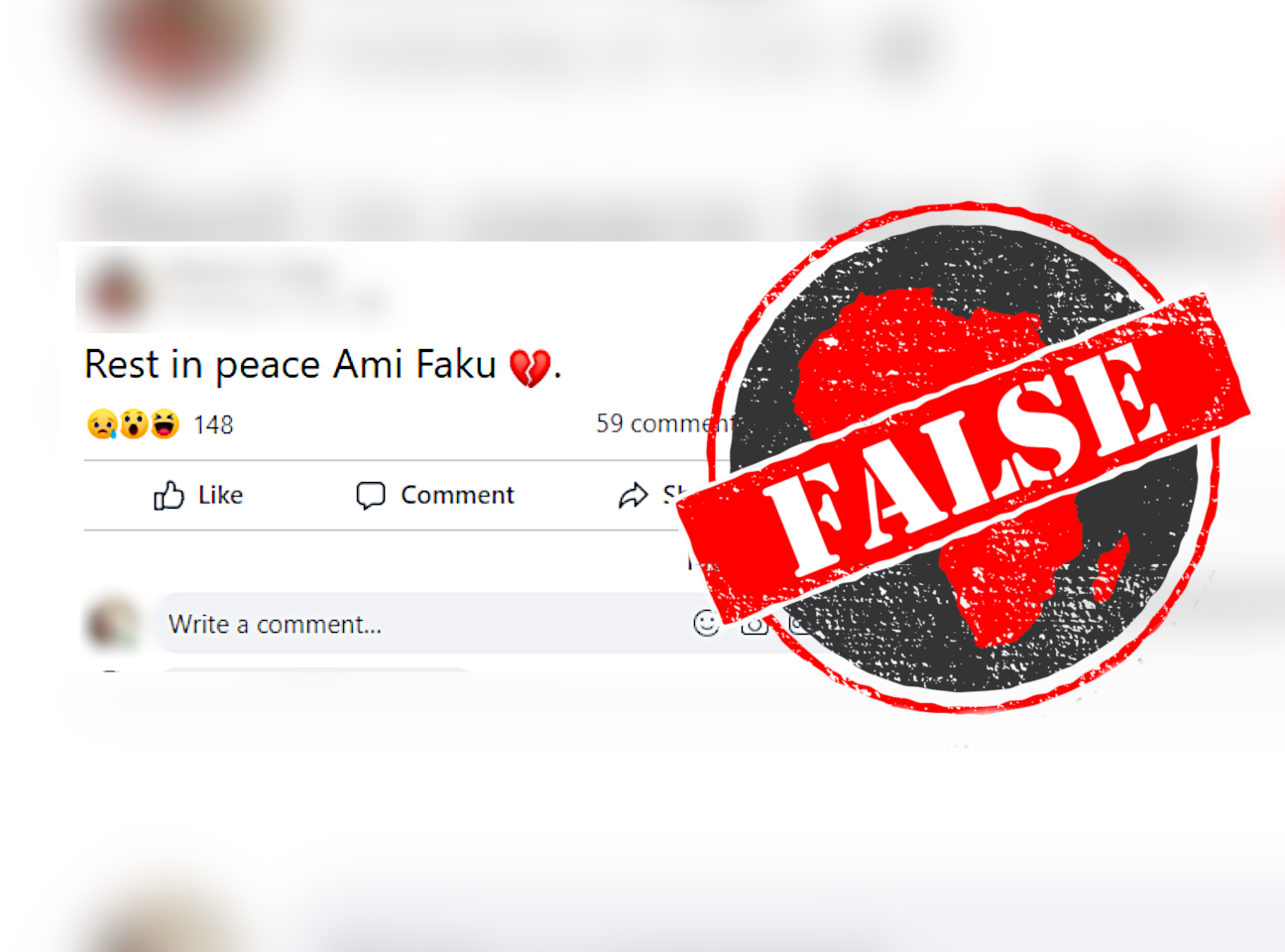Multiple Facebook posts claiming South African singer and songwriter Ami Faku has died were published on 2 February 2021.
“Rest In Peace Ami Faku,” says one post.
“Lala ngoxolo … Ami faku,” says another in isiXhosa, which translates as “rest in peace”.
The 27-year-old singer rose to fame after appearing on local singing competition The Voice SA in 2017.
Was she killed in a car accident? We checked.

Faku currently active on social media
The first post claiming Faku had died was published at 12:37 pm on 2 February. But the singer tweeted from her account nearly two hours later.
“We hit 250,000 streams in first week … Thanks to all of you,” she tweeted, in reference to her new song, also titled Lala Ngoxolo.
At 1:12 pm she tweeted “what the fuck”, presumably responding to the rumours of her death on social media.
She has since been joking with her fans about the news, tweeting “Dawg, they borrowed me a phone here” in response to a fan asking how she was tweeting from beyond the grave.
Ignore the social media posts. Ami Faku did not die in a car accident and is alive and well.
Republish our content for free
For publishers: what to do if your post is rated false
A fact-checker has rated your Facebook or Instagram post as “false”, “altered”, “partly false” or “missing context”. This could have serious consequences. What do you do?
Click on our guide for the steps you should follow.
Publishers guideAfrica Check teams up with Facebook
Africa Check is a partner in Meta's third-party fact-checking programme to help stop the spread of false information on social media.
The content we rate as “false” will be downgraded on Facebook and Instagram. This means fewer people will see it.
You can also help identify false information on Facebook. This guide explains how.


Add new comment